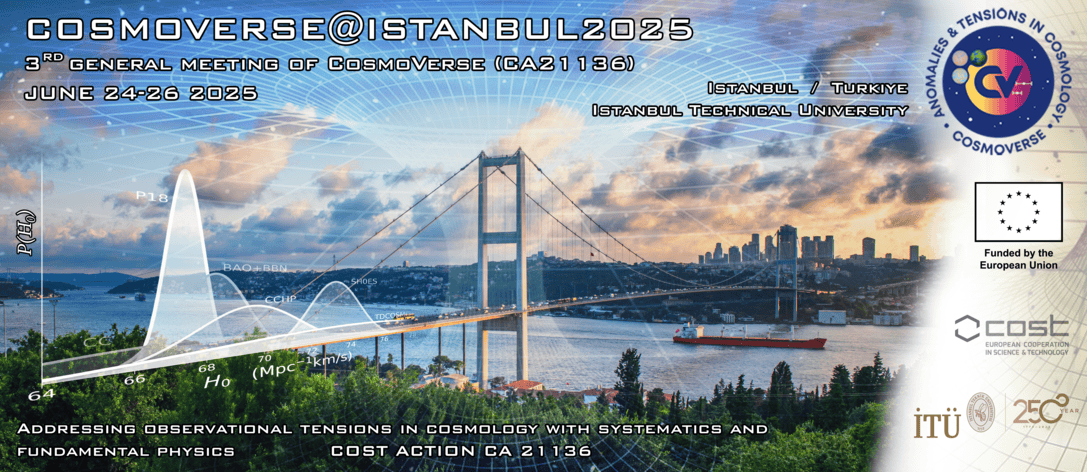Speaker
Description
Recent cosmological surveys have revealed persistent discrepancies within the context of the concordance model regarding the values of the H0 [1907.10625], σ8 [1610.04606] and ΩK [1908.09139, 1911.02087] when estimated with different datasets. Determining the level of disagreement between multidimensional fits is called "tension quantification" [1902.04029].
We approach this problem by producing a re-usable library of MCMC chains, Nested sampling runs, and machine learning emulators across a grid of cosmological models through detecting cosmological tensions between datasets from the DiRAC allocations DP192 & DP264.
This library is available as part of the package unimpeded (https://github.com/handley-lab/unimpeded) and serve as an analogous grid to the Planck Legacy Archive (PLA), but machine learning enhanced and expanded to enable not only parameter estimation (currently available with the MCMC chains on PLA), but also allowing cosmological model comparison and tension quantification, as well as including pairwise comparisons between modern cosmological datasets (CMB, BAO, Supernovae, Weak Lensing). Currently, a systematic coverage of 10 cosmological models and 60 datasets (to be extended) are easily accessible via the unimpeded package using a few lines of code. In addition, we provide machine learning emulators [2205.12841] of these marginalised likelihoods for use in future analyses as a fast and flexible alternative to MCMC chains and nested samples for re-use in future analyses.

